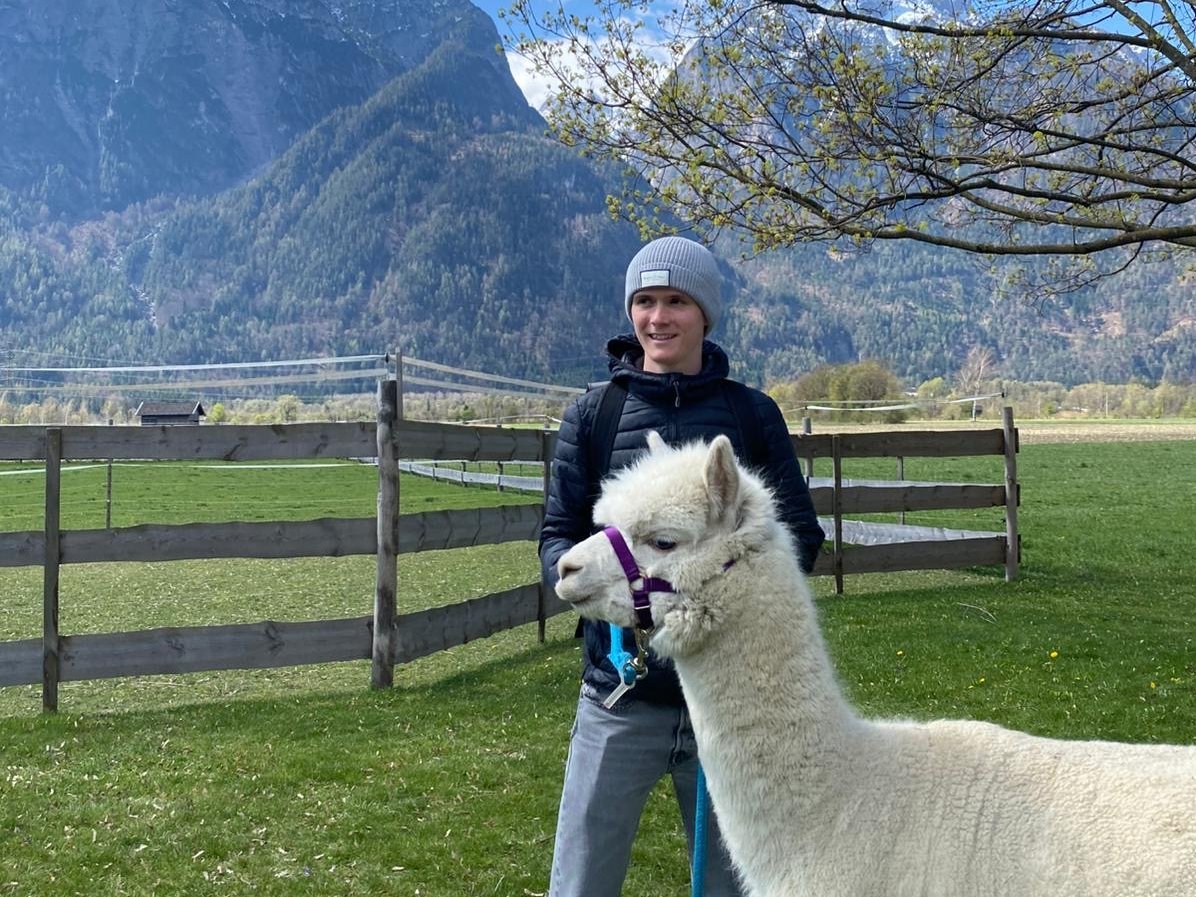Constantin Brockmann supported families with transplanted children and discovered new perspectives.

Mountains, meadows, fresh air: Constantin Brockmann enjoyed nature in his free time. Copyright: Private
Open to new experiences? Then Erasmus+ is the right choice for MHH trainees and employees. The EU programme enables internships lasting several weeks in healthcare facilities in other European countries – MHH provides financial and organisational support for the project. During the internship, participants can expand their professional knowledge, learn about other healthcare systems and make new contacts. Many have already taken advantage of this opportunity. Constantin Brockmann is one of them. The 21-year-old is training to become a medical assistant (MFA) and completed a four-week internship at the Ederhof in East Tyrol. The former farm is a rehabilitation centre for children before and after organ transplants.
Children aged four on average
Constantin Brockmann got the tip to do an internship at the Ederhof from his training supervisor Joe Onur. ‘During my training, I had already done a placement in the heart transplant outpatient clinic, which I really enjoyed. That's why the Ederhof was a good idea,’ recalls the MFA trainee. In mid-March this year, he set off for Austria. ‘I was warmly welcomed and integrated into the team right from the start,’ reports Constantin. During his time at Ederhof, the guests were mainly families with children who had undergone liver or kidney transplants and a few families with children requiring dialysis. The children were four years old on average.
At Ederhof, the families are looked after by a multidisciplinary team. This includes specialists from the fields of medicine, education, physiotherapy, dietetics, psychology, occupational therapy and massage. Constantin Brockmann's working day began at 8 a.m. with a meeting and a brief interdisciplinary exchange. ‘After that, I helped with measuring vital signs, taking blood samples and performing ultrasound examinations, and I dismantled dialysis machines,’ reports the MFA trainee. He then accompanied the families on excursions and activities in nature. In the afternoons, he assisted with changing dressings, for example. ‘Constantin was a great support to our team. He put his whole heart into it and, in addition to providing medical care, was able to experience how the children find their way back to life after transplantation,’ says Doris Etzelsberger, nursing manager at Ederhof.
Rehabilitation should not feel like a hospital stay
Constantin was particularly impressed by the family-oriented concept at Ederhof, which also involves parents and siblings. ‘Basically, we try to reduce the examinations and treatments to the most important ones so that the rehabilitation does not feel like a hospital stay and there is still plenty of time for fun,’ explains Constantin. He really enjoyed working with the children. ‘It was great to see them happy despite their difficult life situation. That made me happy too.’ The trainee can only recommend an Erasmus+ internship to others who are interested. ‘Personally, the time enriched me both professionally and personally,’ he says.
Text: Tina Götting
The Ederhof
The Ederhof is run by the Rudolf Pichlmayr Foundation and has a special connection to the MHH. Professor Dr Pichlmayr (1932–1997) was the long-standing head of abdominal and transplant surgery at the MHH and was considered one of Germany's leading transplant physicians and a pioneer in liver transplantation. He founded the foundation together with his wife, Professor Dr Ina Pichlmayr. In 1990, the foundation acquired the Ederhof.